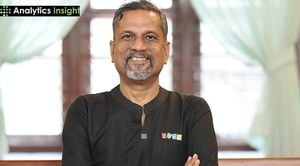Russia's Foreign Minister Sergey Lavrov has made headlines by asserting Moscow's readiness for negotiations with both Ukraine and Europe, noting, "We are ready for negotiations with both Ukraine and Europe." This statement, reported by Hromadske, highlights Russia's persistent engagement efforts amid the complex backdrop of the conflict. According to Lavrov, the cessation of active military operations hinges significantly on achieving results from these negotiations.
The thrust of Russia's diplomatic strategies includes demanding what Lavrov calls "ironclad guarantees" against Ukraine's potential NATO membership. This aspect underpins Moscow’s security strategy, with Lavrov emphasizing the Kremlin's expectations for negotiations to yield satisfactory outcomes for Russia. He stated, "Concessions to the aggressor will not lead to peace," underscoring the challenges facing peace talks.
The Kremlin's strategy appears to encompass dual dialogues, focusing on bilateral discussions with the United States, alongside those involving Ukraine. This approach signals Moscow’s intent to navigate international perceptions and leverage diplomatic channels.
The situation is markedly complex, particularly as discussions within the Czech Republic reveal strong support for Ukraine's territorial integrity, particularly concerning territories occupied by Russian forces. On the third anniversary of the full-scale invasion, Czech officials articulated their steadfast support for Ukraine, asserting, "Three years ago, tens of thousands of Russian soldiers invaded Ukraine with the aim of killing the freely elected president," referring to President Volodymyr Zelensky.
These observations, released by the Czech Ministry of Foreign Affairs, encapsulate the broader geopolitical stakes at play, firmly positioning Czechia alongside Ukraine. Czech diplomats have reiterated their commitment to Ukraine's sovereignty and territorial claims, especially concerning Crimea and parts of Donetsk, Luhansk, Kherson, and Zaporizhzhia regions currently under Russian control.
Analysts suggest this unwavering solidarity from European nations is pivotal, particularly as Lavrov's statements illuminate Russia's strategic red lines. The Czech Republic's position reflects broader sentiments within the EU, where diplomatic efforts are increasingly viewed as balancing acts between deterring Russian aggression and supporting Ukrainian independence.
Also noteworthy are remarks from Zelensky on Ukraine's electoral process during wartime, which indicate significant political challenges. He stated earlier this year, "Elections can only be held once active combat has ceased, as only then can we guarantee the strength of our positions and military readiness. Anything before could undermine our sovereignty. This military position must be secured for any talk of elections."
The remarks coincide with concerns voiced from various Western allies, particularly following misinformed claims from political figures like former U.S. President Donald Trump, who falsely suggested Zelensky's popularity had plummeted, asserting his approval rating was at "4%". Recent surveys, according to KМИС, counter this claim, showing trust levels for Zelensky at around 57%. Such discrepancies highlight the varying narratives surrounding Ukraine’s current leadership amid the eastern European conflict.
Discussions about the possibility of elections remain prevalent, with Zelensky indicating potential voting could occur post-conflict by 2025, dependent on the resolution of military engagement and the constitutional timelines governing elections. Amidst this, support from nations like the Czech Republic remains unwavering, explicitly stating continued assistance for Ukraine's efforts.
Indeed, the international community's backing is integral to grappling with Russia's military interventions. The Czech Republic’s firm reiteration of Ukraine's territorial claims enforces the coalition supporting Kyiv and the push for legitimized governance without interference from aggressors.
While talks of peace and readiness for dialogue echo through Lavrov’s statements, the realities on the ground depict stark challenges. Countries backing Ukraine see any negotiations framed against the backdrop of historical conflict, necessitating adherence to principles upholding international law.
Overall, the intertwined narratives of negotiation and military strategy demonstrate the complexity of diplomacy involved as the conflict continues. How nations engage with Russia and Ukraine’s president shapes the future of the European security architecture, particularly as tensions remain high.



